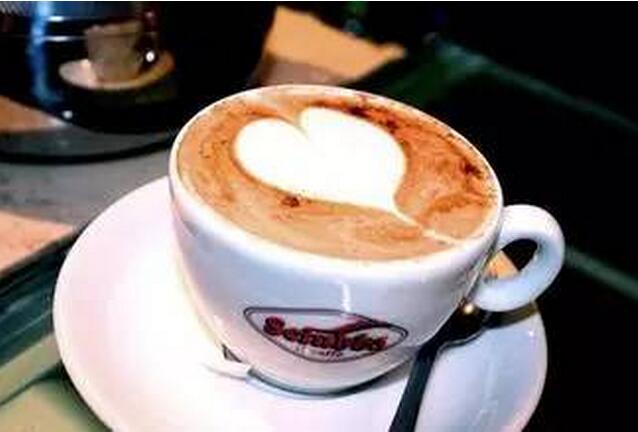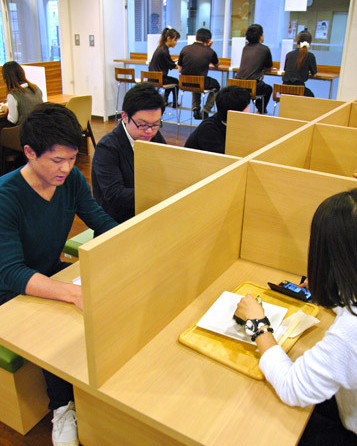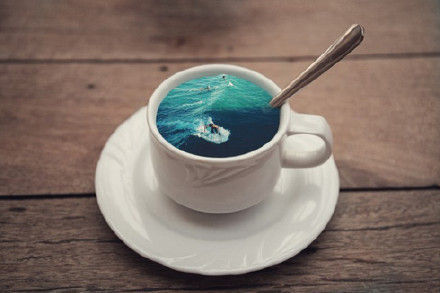The coffee industry has entered a strange circle: why is it so difficult to run a coffee shop successfully?
The whole coffee industry seems to have entered a strange circle, opening a coffee shop at 50 times the cost of opening a Spicy Hot Pot shop, and the final profit is likely to be 50 times that of a Spicy Hot Pot shop, and in many cases less than 50 times as much.

The above sentence seems to be a bit of an exaggeration, but for entrepreneurs, it is indeed a naked truth.
Many people have dreamed of "opening a coffee shop", and many entrepreneurs have really done so. They try to spend a lot of money on the infrastructure of a coffee shop-all kinds of expensive professional equipment (coffee machines, roasters, bean grinders, etc.), coffee shop promotion, including the stabilization and upgrading of their own products during the construction process. these are all quite high investments.
In the eyes of a coffee practitioner for many years, these investments are indeed valuable: luxurious and high-end equipment often brightens the eyes of coffee lovers with envy and admiration. Solid products will be favored by many "experts", but these efforts are often meaningful only in the eyes of their peers. To make a bitter remark, it makes little sense in the eyes of a consumer who is "not in touch" with the coffee industry.
"the ideal is very plump, the reality is very bony." As a result, many cafes have become places where countless literary and artistic youth's dreams are shattered. Every so-called coffee shop opens, and another coffee shop becomes a fancy drink shop (perhaps it is more appropriate to call it a milk tea shop), to a snack bar (some even sell Spicy Hot Pot), and finally closes down or transfers. In the face of these gory lessons, few people think: why is it so difficult to successfully run a cafe?
songs of a highbrow type will find very few people to join in the chorus
Most of the consumers of good restaurants are peers.
Of course, there is no lack of outstanding people in the cafe. The author also admires this kind of cafe and its owner very much. However, after chatting with some of the owners, I found a fact that I do not know whether it is happy or sad: the cafes that coffee practitioners think are good have become places for baristas to gather. To put it simply, practitioners go to the store to spend a high proportion of business income.
In April this year, the author went to the Shanghai Coffee Fair and obviously felt this. See the exhibition during the day, visit the library at night, go to some well-known restaurants at night, and find that they are all familiar faces. I can't help but marvel that they are all colleagues, and people at the same table are drinking coffee and exchanging their views on the products here. Of course, this is a good thing, to promote the growth of quality in the industry, the author also agrees.
However, I have to throw out a question here-how many guests go for that boutique cup of coffee on weekdays?
The answer may be in your heart.

"look down on" consumers
Of course, there is no shortage of this daily phenomenon in the strange circle-"looking down on" consumers who are thought to be unable to drink.
We can have a lot of patience with coffee and find out its sweet spot in many ways, which is suitable for its baking curve and brewing method. This is the happiest time for baristas to have a cup of coffee to their satisfaction.
At this point, let's assume that there is a barista who makes a cup of coffee that he thinks he is satisfied with and hands it to a guest, and she says, "Um." Can you give me some milk and sugar? I don't think it tastes good. It is estimated that at this time, we can use a popular saying-"there are thousands of grass-mud horses galloping in my heart." Generally speaking, at this time, baristas will be annoyed or bring a little emotion to send sugar milk to the guests.
And the barista probably beat this guest a thousand times a hundred times in his heart. The guest will not end much better and is expected to be blacklisted in some sense and then subjected to cold violence.
However, has anyone ever thought that the above scene can actually be transformed? Imagine that the barista should be more patient at this time, ask the guest which flavor in the cup she doesn't like, then recommend another one for her, make it for her in time, and ask for advice again, wouldn't it be better? In this way, guests will get a cup of their favorite drink, and secondly can enhance the customer experience, which is a win-win situation. Because consumers just want to get a drink they like. Go out to spend money, the picture is to get satisfactory service.
Baristas are not waiters, but a good barista must provide good service.

A culture that cannot be "drunk".
The above example can also be extended to other events, especially when there are some guests in the cafe who we think are "pretending to be forced", they always pretend to be "very knowledgeable", and such guests always make a lot of jokes. However, from another point of view, why would he "pretend"?
In fact, he wants to know about coffee. He likes coffee. If we give him patient guidance, I believe he will soon be on the right track and bring you more unexpected "surprises". The author has used this method to make this kind of guests more fond of coffee, but also brought more friends to understand, why not?
This further reflects how inadequate the construction of our market culture is. Many guests don't even know what Latte, cappuccino and flat-white are in milk coffee, so there is a joke that cappuccino doesn't want milk foam or suck a straw to drink cappuccino.
Before writing this article, the author had the honor to drink the red mark rosy summer of this year's Panamanian Jade Manor, which was quite unforgettable. But I thought of a problem at that time: we practitioners all know the value of this cup of coffee and what it means, so it brings us joy, longing, and expectation. However, if you put it in front of an "ignorant" consumer, the rosy summer may be worthless, or even spurned: "Wow, such a cup of black coffee costs 158, drinking Nestle for a long time."
This is the manifestation of the lack of popularity of culture.
If the coffee culture can well enter the public, the audience level is wider, I think the consumer peer this kind of thing should not be so serious, and the value of our baristas will be more recognized.
Japanese coffee culture is well built, of course, it has a lot to do with history. I was once asked speechless by an old Japanese gentleman.
He asked me, "do your parents drink coffee?"
I answered my mother to drink. He asked me again, "do your grandparents drink coffee?"
I can't answer this time.
Many peers like to make fun of industry giants such as Starbucks, but in fact they are also working silently to promote coffee culture: how many peers can do free coffee courses from time to time? Carefully make every cup of coffee for you, until you are satisfied, how many colleagues can do it?
I heard a saying from a friend who used to work at Starbucks, which made me awe--
"I can't say how our products are in the whole industry, but I can proudly say that this is definitely a place where people can fall in love with coffee."
There is still a long way to go. I hope the future of the domestic coffee industry is colorful, and people really go for a good cup of coffee. Look forward to, look forward to.
Important Notice :
前街咖啡 FrontStreet Coffee has moved to new addredd:
FrontStreet Coffee Address: 315,Donghua East Road,GuangZhou
Tel:020 38364473
- Prev

An one-person coffee shop uses reverse marketing strategy to attack the gospel of single students.
Rugao Business Information Network in Osaka University of Economics, a coffee shop named one person Coffee opened in October. The coffee shop is run by students themselves. The tables in the coffee shop are separated by partitions. A total of 61 seats are divided in the shop, all designed as single seats, and citizens can also enjoy coffee inside. It is reported that this coffee shop is a coffee shop that closed last year.
- Next

How can you drink the alternative art in the coffee cup?
Creating smiley faces, love and other patterns in coffee cups has been taken for granted. However, Victoria Siemer, a female photographer, created a series of magnificent scenes such as the waves and the galactic starry sky into a small coffee cup. Can you enjoy such a miniature magnificent art before drinking coffee, do you still have the heart to drink this work?
Related
- Can lightly roasted coffee beans be used to extract espresso? How finely should you grind high-quality coffee beans to make Italian latte?
- What is the difference between the world's top rose summer coffee and Yejia Shefi? What are the flavor characteristics of Yega Shefi coffee and Panama rose summer?
- The ceremony is full! Starbucks starts to cut the ribbon at a complimentary coffee station?!
- A whole Michelin meal?! Lucky launches the new "Small Butter Apple Crispy Latte"
- Three tips for adjusting espresso on rainy days! Quickly find the right water temperature, powder, and grinding ratio for espresso!
- How much hot water does it take to brew hanging ear coffee? How does it taste best? Can hot water from the water dispenser be used to make ear drip coffee?
- What grade does Jamaica Blue Mountain No. 1 coffee belong to and how to drink it better? What is the highest grade of Blue Mountain coffee for coffee aristocrats?
- What are the flavor characteristics of the world-famous coffee Blue Mountain No. 1 Golden Mantelin? What are the characteristics of deep-roasted bitter coffee?
- Can I make coffee a second time in an Italian hand-brewed mocha pot? Why can't coffee be brewed several times like tea leaves?
- Hand-brewed coffee flows with a knife and a tornado. How to brew it? What is the proportion of grinding water and water temperature divided into?

